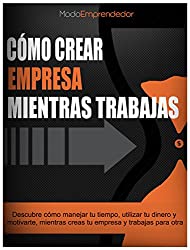
Have you noticed that there are people who are luckier than others? It seems like they know how to have good luck. As if they were born with a star above them. It’s like everything is given to them.
Well, I want to tell you that you are very wrong. None of this has to do with luck; but with positivity, visualization and believing in yourself.
That is the luck of the successful: the one they build themselves.
For some people these topics are silly, boring and unnecessary; but it is the truth. You don’t need to be more intelligent, experienced, studied, wealthy and much less lucky; You just have to change your mindset.
You don’t need to be experienced or wealthy, you just need to change your mindset. Click To Tweet
Luck depends on your mindset and perception.
For example, if you believe that it is never enough to fight for your goals because life is very difficult and things never happen to you; then you will have many problems to achieve what you propose, because your mind is already predisposed. In this case you will feel that you have bad luck.
For some people this topic of “positivism” is silly and unnecessary. And how do they thinkluck is already cast, They think they can’t do anything to change it. However, science does not think so.
Richard Wiseman is a psychology professor, speaker, and author of books that have been translated into more than 30 languages. in his book The Luck Factor: The Scientific Study of the Lucky Mindgive 4 principles with which we can learn how to have good luck.
Let’s see them…
How to have good luck.
Wiseman managed to decipher luck after studying more than 400 people (which he divided into “lucky”, “unlucky” and “neutral”), for years. Through interviews, exams and many experiments; he concluded that luck has nothing to do with superstitions, it has to do with behaviors.
“Those who are lucky try things. Those who don’t suffer from analysis paralysis. They do nothing until they analyze even the smallest detail and by then the world has moved on. They do not gain the benefits of learning by doing. I’m a big fan of starting small, trying lots of projects, and seeing what works and what doesn’t”; Wiseman says.
So how to change our luck:
1. Maximize your opportunities.
In an experiment, participants had to count how many photographs were in a newspaper. The objective was to measure how closely anxiety was related to the lack in order to see new opportunities.
On average, the “unlucky” people took 2 minutes. But the “lucky” ones did it in just a few seconds.
The difference in times was due to the fact that the “lucky ones” saw 2 signs that were inside the newspaper. These signs ran almost half a page and had eye-catching text.
The first one was on the second page and it said: “STOP COUNTING, THERE ARE 43 PHOTOS”. The second one was in the middle of the newspaper and it said: “STOP COUNTING. TELL THE MANAGER YOU SEEN THIS AND WIN $100.”
To learn how to maximize opportunities, Wiseman recommends that we relax. He noticed that the “unlucky” subjects were very anxious, and this prevented them from seeing the 2 signs.

2. Trust your instincts.
Has it happened to you that you have to make a decision and you feel something inside that insists you take an alternative “X” or “Y”?
It is natural. We call it instinct or hunches.
Wiseman asked the study subjects how often they followed their hunches regarding work and relationship decisions, and the results were as follows:
- 90% of “lucky” said they followed their instincts in terms of personal relationships.
- 80% of the “lucky” relied on their instincts to make work decisions.
- Only 20% of the “unlucky” followed their instincts.



3. Hope for the best.
Lucky people tend to think that they will have good luck.
In Wiseman’s study, participants were given a few scenarios. Like what would be the probability of having a great time on the next vacation; or the probability of achieving one of the lifetime goals.
- 90% of “lucky” expected to have a great experience on their next vacation.
- 84% believed they would achieve their dreams.
- But only 60% of the “unlucky” had positive expectations in both scenarios.
A positive mindset allows them to see themselves overcoming obstacles to achieve goals. If you tell yourself that you are capable, you already started on the right foot. But if, on the contrary, you always doubt yourself and think that you will not have luck; you enter the war targeting yourself.



4. Turn bad luck into good luck.
No matter how lucky you think you are, you are not exempt from going through bad times. The question is how you see those moments of “bad luck”.
Imagine that you are in an elevator and it stops abruptly. You have 2 options: Get upset because you wasted time and you’re going to be late. Or rejoice because nothing serious happened and you’re alive. From which side do you see it?
Wiseman’s research highlights 4 techniques to turn bad luck into good luck.
- The “lucky” see the positive side of their bad luck.
- “Lucky” people are convinced that, in the long run, any bad fortune will turn in their favor.
- The “lucky” do not stay thinking about their moments of bad luck.
- “Lucky” people take constructive steps to avoid further bad luck.
“When you start to replace negative thoughts with positive ones, you will start to have positive results.”



If you want to meet Richard Wiseman, play the video to hear a very short but interesting talk from him.
Conclusion.
If you want to learn how to have good luck, transform your life, and become that person who was “born with a star”, eliminate negative thoughts and replace them with those thoughts that allow you to see solutions where others see problems and opportunities where others see obstacles.
You will be surprised how quickly your life will change 🙂
And remember, if you are really interested in creating your own business, you can read our book “How to create a company while working: Discover how to manage your time, manage your money and motivate yourself while creating a company and working for another” , where you will find all the information you need to found your own company, without having to leave your job.



